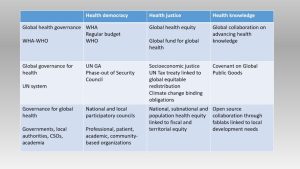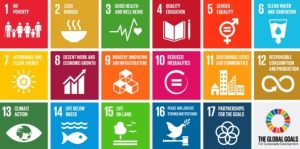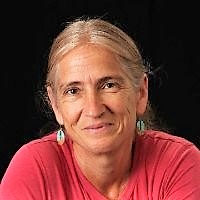The recent pandemic Covid-19 has left a big impact on to our lives. It has not only added some painful memories, but at the same time, it has left us with some beneficial factors that could not have been achieved over centuries. The time has come to analyse those positive effects that revolutionized some very important environmental laws in force. The forced Lockdown period not only restored the balance within the ecosystem, thereby reducing emission of Green House Gases (GHGs) as also reducing the requirement for electricity consumption but at the same time, it brought peace and tranquillity not known for many decades. Thus, Air Pollution came to a standstill, so also water reached its significant level of purity and unwanted use of noise never ran the show. On the other hand, the rampant burial of corpses, and the haphazard disposal of PPEs in the form of gloves and masks brought with in itself the risks of increased Bio-medical Hazard. Thus, the Environment was at the pity of our hands, of how to use it. This stirred and shocked the whole nation, with the environmentalists trying to bring in some tangible reforms. Environmental Law which subsist on the Ministry of Environment, Forests & Climate Change (MoEFCC), Central as well State Pollution Control Boards has in in its ambit The Wildlife Protection act 1972, The Water (Prevention and Control of Pollution) Act 1974, The Air (Prevention and Control of Pollution) Act 1981, The Environment (Protection) Act 1986, The Public Liability Insurance Act 1991 (later amended in 1992), The National Environment Appellate Authority Act 1997, The Energy Conservation Act 2001, Biological Diversity Act 2002, Scheduled Tribes and Other Traditional Forest Dwellers (Recognition of Forest Rights ) Act 2006 , The National Green Tribunal Act, 2010, Compensatory Afforestation Fund Act, 2016 respectively. With the onslaught of such an imminent Disaster, the Country came up with a Draft Environmental Impact Assessment Notification 2020 by the MoEFCC and another was on Coal Mining. Concern started brewing as none of them were without public dialogue and was a drastic decision on the part of the Government. They brought in Ordinances, Notifications as well as Guidelines during this time period of Complete Shutdown.
In this paper, the author seeks to analyse how these new Environmental Laws will impact our Environment over a period of time and similarly the Human Mankind accordingly. It is high time that we all arise and voice our concerns as to the need of the merits and the demerits of such Legislations.

By Dr Tanushree Mondal
Associate Professor and Student of LLB Course, Kingston Law College
West Bengal, India
The Effects of the Onslaught of COVID-19 and its Impact on the Environmental Laws
INTRODUCTION
The World witnessed the outbreak of COVID-19 at the end of December 2019, from the Hunan seafood market in Wuhan City of China, and over time, the World Health Organization declared it as an international public health emergency. 1 As of September 06, 2020, the virus spread to 216 countries, with the death toll of 876, 616 humans from 26,763,217 confirmed cases 1. This virus mainly spread through person-to-person via direct contact or droplets produced by coughing, sneezing and talking 2,3,4. To control the spread of this virus and in order to reduce the death rate, Government of most of the affected countries as well India restricted the movement of its people and promoted the use of non-pharmaceutical measures like wearing face masks and hand gloves, washing hands with soap, frequent use of antiseptic solution and maintaining social distance. To reduce further spread, all the public transport services (e.g., bus, truck, train, aeroplanes etc.) were suspended, with exceptions of the transportation of essential goods and emergency services 5. The World Economic Forum reported nearly 3 billion people were faced with some form of lockdown globally on April 7th, 2020.
COVID-19 AND ITS POSITIVE EFFECTS ON THE ENVIRONMENT
With the advent of lockdown, industries, transportation and companies were closed down, that brought in a sudden drop of greenhouse gas (GHGs) emissions. Emission of NO₂ is one of the key indicators of global economic activities, and during that period, data revealed a sign of reduction in many countries (e.g., US, Canada, China, India, Italy, Brazil etc.) due to the recent shut down. 6,7,8,9
Overall, low consumption of fossil fuels in locomotives as well as in industries reduced the emission of GHGs, thereby helping to deal efficiently against global climate change. Oil demand dropped to 435,000 barrels globally in the first few months of 2020, compared to the same period of the last year 10. Likewise, the global coal consumption reduced to 26% in India with 19% reduction of total power generation following lockdown11.
Since the major industrial sources of pollution reduced or completely stopped, it brought down the pollution load 12. Rivers Ganga and Yamuna, reached a significant level of purity due to the absence of industrial pollution during lockdown in India. It was found that, water in 27 out of the 36 real-time monitoring stations of river Ganga, met the permissible limit which in itself was a remarkable finding to us. 13So also, there was improvement of water quality at Haridwar and Rishikesh respectively and reduction of almost 500% of sewage and industrial effluents 9,13.
So also, the noise pollution reduced. The noise level of the capital city of India, drastically reduced to around 40–50% during the lock‐down period 9. As a result of the reduction of vehicle movement during that period, the noise levels of Govindpuri metro station in Delhi reduced to 50–60 dB, from 100 dB 14. Central Pollution Control Board 15 of India stated that, noise level of residential area of Delhi reduced from 55 dB (daytime) and from 45 dB (night) to 40dB (daytime) and 30 dB (night) respectively.
Thus, the pandemic has caused huge global socio-economic imbalance, that affected directly as well as indirectly the environment such as improvement of air and water quality, reduction of noise and restoration of ecology 8.9.
DETRIMENTAL EFFECTS OF COVID-19 ON THE ENVIRONMENT
On the other hand, since the outbreak of COVID-19, bio-medical waste generation increased immensely, posing a major threat to public health and environment. For example, in Ahmedabad, the amount of medical waste generation increased from 550-600 kg/day to around 1000 kg/day during lockdown 9. Bio-Medical Waste generated from the hospitals in the form of needles, syringes, bandage, mask, gloves, used tissue, and discarded medicines etc. was not managed properly, which posed a matter of concern globally. Such dumping of wastes indiscriminately clogs the water ways and worsens environmental pollution 16,17. Usually, Polypropylene used to make N-95 masks, and Tyvek for gloves persists for a long period and releases toxins like dioxin to the environment 16. So also, huge number of disinfectants applied to roads, commercial, and residential areas to curb SARS-CoV-2 virus kills beneficial species, creating ecological imbalance 18.
Here, there is something to be mentioned about the conditions that prevailed over a Burial Ghat 19 on the banks of River Ganges in Prayagraj in UP. Several corpses were buried by their near and dear ones who succumbed to death as a result of the deadly Epidemic. They dug a shallow grave and covered them with sand. and as a result of which, increased the chances of Water Pollution, thereby disrupting not only the aquatic Flora and the fauna there, but at the same time, challenged that the bodies would be all over everywhere once the monsoons arrived and the sand was flooded by the river Ganges. The local Councillors assured to make use of JCB machines to dig deeper graves to bury them further down as the corpses were old and in such bad condition that it hardly can be handled or shifted. Thus, it is still a Mystery that much water has flown by, but what really happened to Prayagraj following Covid -19?
As a result of restriction of movement thereby slowing of socio-economic activities, improvement of air quality took place with a reduction in water pollution at the same time. Besides, increased generation of hospital wastes (e.g., face mask, hand gloves etc.), disposal of them haphazardly, overcrowding of Burial spots affecting the aquatic flora and fauna had negative impacts on the environment.
In these circumstances, the study aims to explore both the merits and demerits of environmental consequences of COVID-19 pandemic, and how the new environmental Law 2020 Draft 20 suddenly enforced by the Indian Government will affect the human life and the natural ecosystem in the future days to come.
It is well -known that most of the coal mining areas are situated in the dark forests of certain parts of Indian like Chattisgarh. It is also known that not all areas are open to Mining activities due to some reasonable restrictions posed by Law. Most of these forest areas are inhabited by Scheduled Tribes and to maintain sanctity, the Indian Laws have only permitted few such areas for Business Mining. With the introduction of the new EIA (Environmental Impact Assessment), many such restrictions have been withdrawn and is open for Coal Mining. This in itself is a hindrance and murder to the Natural Ecosystem, the indigenous Flora and the Fauna. So, it led way to Business corporates the permission to enter those Restricted zones at ease.
Many say, since the country was grieved with the Disaster on one hand, the Government took it as an opportunity to release the EIA so that resistance from the Public will be the Least as common people was waged with a war of Life vs. Death.
On the other hand, it was also felt that when people were struggling with their lives for the deadly disease that haunted us for three long years, The Indian Government was busy bringing such laws without the permission of the people of Indian, which is not in consonance with the Democratic rights of the people. This Act violated the Democratic nature of the Constitution of India which states By THE PEOPLE, FOR THE PEOPLE, OF THE PEOPLE. Here, in this context, it is worth mentioning that, there is a law that, if any corporate body wants to trade in a restricted place, first it needs to have a dialogue with the indigenous people of that area. They should and must be on equal terms before allowing the other to venture in their land to do trade. This was heavily violated in this case of EIA.
As per the State of India’s Annual Environment Report 2023, shocking figures 21 are revealed regarding our Environment. Four Parameters have been used. Out of which the First and Foremost is the Environmental Performance is one such Key Parameter and the State of Telengana ranked First, however Nagaland, Rajasthan and Bihar ranked last. Telengana however, showed faltering figures in cases of Share of water bodies not in use, Stage of Ground water Extraction and in terms of Change in the number of Polluted River Stretches. In the Other Parameter, which is Agriculture, Madhya Pradesh ranked the Highest for the highest share of net value added and foodgrain production but it too was not free of loop-holes. Half the Crop Area in the state remains Un-insured. The Third Parameter was one of Public Health where Delhi ranked first due to maximum Budget allocated to health of this State and Healthcare facilities but failed in Low Immunisation Rates. It was astonishing to find the State of Madhya Pradesh ranked low owing to High incidence of Maternal Mortality Ratio and Infant Mortality Rate still prevalent in this new era. Public Infrastructure and Human Development is the last Parameter, and Gujrat topped it for its performance in providing employment and increased Tap water Connections, however it ranked comparatively low in Sex Ratio and also in Rural households using unclean cooking fuels. It was astonishing how the State of Jharkhand ranked low along with a Tribal state, Nagaland. There were also key findings in 5 (Five) more salient areas.
In July 2022, India imposed banning of illegal use of plastics and anyone could lodge a complaint through a Mobile app called SUCPCB, but complaint rates were dismal. In 2021, India generated around 1,60,000 Tonnes of Municipal Solid Type Waste per day out of which 32 percent wastes were unaccounted for and is responsible for choking the water drains and are indiscriminately burnt. It is a shocking revelation in 2021, that the Average Life Expectancy in urban areas is shortened by 4 years and 11 months due to ever-increasing Air pollution. The people in the rural areas are worse affected with their life expectancy reduced by 5 years and 2 months. COPD (Chronic Obstructive Pulmonary Disease) is on the rise and thus Air pollution impacts badly on the human health. Same is the impact on Climate Disasters and on Extreme Weathers. In the year 2022, India experienced extreme weather events on 314 out of 365 days (86%) resulting in loss of 3,026 precious lives and damage to over 1.96 million hectares of crop area. Such calamities have impacted greatly on the Internal Displacement and Migration of the people. In the year 2022, India witnessed 100% of 2.51 million new displacements due to all such Disasters.
MEASURES TAKEN BY THE JUDICIARY TO PROTECT THE ENVIRONMENT
In order to maintain a world with clean air, The Air (Prevention and Control of Pollution) Act of 1981, or the Air Act came into force. Akin to air pollution, excessive noise is also considered to be a kind of pollutant of air as per Section 2(a) of The Air (Prevention and Control of Pollution) Act of 1981. Similarly, the Water Prevention and Control of Pollution Act, 1974 was enforced in order to provide its citizens with clean drinking water and ensure proper maintenance of water bodies.
The Environment Impact Assessment Bill 2020 22 (EIA) is a highly debatable ball game of the century. It is astonishing that when the whole world was gripped with the fear of Covid and India was a party to it due to the Impact, Indian Government brought in strange laws.
The EIA Draft was introduced to evaluate & also to estimate the impacts on environment and was first conceptualized in USA in the year 1979 which was later followed globally including India. It includes an Environmental Clearance in the form of a No Objection Certificate from the Central Ministry, State Department and locally from the Municipality or Board. Since 1994, such Environmental Clearance (EC) Certificate from the Ministry of Environment, Forest and Climate Change (MoEFCC) was given only to those where Environmental norms or Food Security were not violated. EIA was later introduced in the Legislature in India in the year 1994. This was incorporated in order to strengthen or weaken a balance between the Environmental Growth as well as Industrial Development which is a difficult task in itself. Sometimes, this decides whether the Government took a beneficial move, or did a poor deal. So, in a way it was just to strike a Balance between the Environmentalists and the Industrialists, or in other words, it led to a situation of Cost-Benefit Analysis. Several reforms were brought by the Policy makers in the following years.
In the year 1994, Government established an Environmental Impact agency (EIA) at the MoEFCC and made provisions to impose Penalty or Fine if they found any irregularity. Later in April 1997, Government introduced the system of “Public Hearing”, a chance given to the public for hearing as to the need of such Industries, thereby maintaining the sanctity of Democracy of the country.
However, in June 2002, Government cleared many High-Level Investment Projects without an EC. This is when the question of Dilution crept in. For example, a Construction of a mine can impact the environmental sustainability as well as lead to drastic major displacement and migration of the people. It is considered as an Industrialist Friendly Amendment. So, the industrialists celebrated at the irk of the environmentalists.
The next year in 2003 February, Government introduced more studies, research and inspection of project sites for better assessment. This attracted in more scrutiny which may lead to more disputes, Lawsuits and other consequences against the Industrialists. It was a mixed move by the Government, but In August 2003, The Government stated that any project in a highly polluted area and/ or within 15 km radius of a sensitive ecosystem/ protected area (National Park, Biosphere Reserve etc.) would require the EC and it came in the wake of the Biodiversity Act, 2002.
In September 2003, The Amendment that was brought by the Government was that “Public hearing is not required for activities that are taking places outside 10 km radius of any sensitive ecosystem or human habitation” which was in sharp contradiction to 2003 amendment. The Government introduced “Temporary working permit for 2 (Two) years without an EC from July 2005. This move emphasized taking pity and granting mercy even when the industry committed a Mistake Intentionally within a span of these 2 (two) years.
The New EIA 2006 notification was drafted following this with 4 (four) salient points and replaced the EIA 1994 notification subsequently. The 2006 Notification divided the Projects in 2(two) categories namely Category A that required EC from the Central Government and Category B that needed to receive their EC from the respective State Governments. Out of which, in B1 -EIA reports were to be made while B2 was Exempted from EIA Process. This actually allowed Discrimination to creep in. 2006 Draft was made on the basis of Size or Capacity of the project and not on the level of Investment that contradicted the June 2002 amendment. This reflected the Pro-Industrialist Move by the Government. In this very amendment, public consultation was allowed only after EIA report was submitted. That was in fact, a fallacy adopted by the Government as once the EIA report is submitted, no changes can be made even if it was harmful to the nature or the local people. It just gave a Breathing space to the Industrialists but established that public opinion was not pivotal. Moreover, the funny part was that the Government never defined the term PUBLIC as what it exactly meant, either the general public or the Locals living around. Last but not the least, the Government Decentralized a lot of process to the State Government and reduced the time from 14- 28 months to 10-14 months alone. The amendments reflected how the policy -makers induced a tug of war between the environmentalists and the industrialists all through out.
Our key intention are the key points of Dispute or Concern with the New EIA 2020 Draft that came in during the Covid-19 Pandemic which will replace the 2006 Notification. It also covered 4 (Four) main points namely,
Post-facto approval
EC will be granted even if the construction has started or its in running phase- This means that the industries need not require a prior permission to start. This is in fact a very bold step on the part of the Government and a breach of trust of the common people.
Government does not want to halt Development plan or hurt the Economy which means that any environmental damage will be ignored and the culprit may get away by paying a fine which might not anywhere be close to the damages caused to the Environment.
Public Consultation Process
Time period for public to submit responses during public hearing is reduced from 30 days to 20 days. The introduction of this clause meant that Time which is an important essence for any public discourse and the endeavour of the Government is to wrap up as soon as possible to avoid the wrath and scepticism of the common people. Sometimes information as to the indigenous place is often not easily accessible and also there are barriers in language, and by reducing this time period, Government has tried to stifle the voice of the Nation.
Relaxation of monitoring requirements/ compliances
In 2006 Notification, compliance report is to be submitted for every 6 (six) months which helped in reality check but the 2020 Draft says Only ONCE a YEAR. – This will encourage unseen irreversible environmental and social consequences.
Gaming the system / loophole
Government’s categorization of a Project as “STRATEGIC” will be misused or creates a way to bypass the whole EIA process– This tells us that those projects will be stamped as Strategic, their details will not be shared in the public domain. The irony is that it will be the Government itself who will deem a Project to be Strategic and that this categorization is truly vague and violates the right of any citizen of India to procure any information as per the Right to Information Act, 2005. This act calls for a reduction of Transparency and credibility of the government as this is its own Brainchild and that it permits that if anyone violates the environmental laws, none can go against the Government.
Projects up to 1,50,000 square metres (previously it was 20,000 square metres) do not need “DETAILED SCRUTINY” by Expert Committee nor they need EIA studies or Public Consultation– This question of no scrutiny is like one clause bringing down all the other clauses in a Law down and is reflective of the poor judgement on the part of the Government.
IMPORTANT LANDMARK JUDGEMENTS/ CASE LAWS IN RELATION TO ENVIRONMENT
In this regard, few important Case Laws 23 may be cited concerned with Environmental Law.
Vellore Citizens Welfare Forum v. Union of India [[1]]
Related to: In this landmark case, the Supreme Court delivered its judgment in favour of Vellore Citizens Welfare Forum. Under Article 32 of the Indian Constitution Act, they had filed a Public Interest Litigation against the large-scale pollution to River Palar, which was the only source of drinking and bathing water for the local people. This pollution was caused due to the release of untreated wastes from the tanneries as well as other industries in Tamil Nadu. On top of that, it was found that nearly 35,000 hectares of agricultural land had become unfit for cultivation.
Held: The Supreme Court admitted that these Tanneries in India were the main foreign exchange earner providing employment to several thousands of people, yet due to environmental degradation, it directed all the Tanneries to deposit a sum of Rs. 10,000 as fine.
- C. Mehta v. Union of India (Ganga River Pollution Case) [[2]]
Related to: It was a PIL filed by the Mr. M. C. Mehta U/A 32 of Indian Constitution, where it was observed that water of River Ganga was highly toxic near Kanpur city because the Tanneries in the area were discharging untreated effluents and sludge into the river through nine nallahs. Even dead bodies and half-burnt bodies were also been thrown into the river indiscriminately thereby polluting the whole environment.
Held: The Supreme Court held “Just like an industry which cannot pay minimum wages to its workers cannot be allowed to exist, the tanneries which cannot set up a primary treatment plant cannot be permitted to continue “and observed that the contents of iron and manganese were much higher than the ISI limits of river water that made it harmful for consumption. Finally, the court held Kanpur Maha nagar palika liable. It also passed the following directions for the PCA (Prevention, Control and Abatement) Act, which were as follows:
- Increasing size of sewers in labour colonies;
- More numbers of latrines and urinals to be constructed;
- Preventing disposal of corpses and half-burnt bodies or ashes after Funeral ceremonies into the river indiscriminately;
- Installing treatment plants in all factories including tanneries;
- Observation of ‘Keeping the village clean week’
- Addition of Clips relating to importance and purity of water in the movie theatres at the time of intervals
Andhra Pradesh Pollution Control Board v. M. V. Nayadu [[3]]
Related to : The respondents desired to establish an industry and so applied for issuance of Licence to the Commissioner of industries which meant that they had to fulfil certain essential criteria in order to obtain a certificate for Pollution control from the SPCB. Unfortunately, their appeal was rejected by A. P. PCB as it fell under “Red Category” and over that, the proposed site was within the radius of 102kms of 2 (two) lakes namely, the Himayat Sagar Lake and Osman Sagar Lake. Both were the primary sources of drinking water for Hyderabad and Secunderabad respectively. The Corporation further applied and was re-rejected on the same reason. Aggrieved respondents then moved before the Appellate Authority but the Respondents filed a PIL before High Court of Andhra Pradesh stating the order of APPCB to be baseless. Subsequently, APPCB went in appeal to Supreme Court against the orders of High Court under Article 136.
Held: The Supreme Court agreed to the appeal and agreed to the decisions of the APPCB for not granting the consent. The Court referred to landmark judgements in Vellore Citizens Welfare Forum case and Shri Ram Food and Fertilizers Gas Leakage case and held that the judges followed the Precautionary Principle and Polluter Pays Principle.
APPLICABILITY AND NON-APPLICABILITY OF ENVIRONMENTAL ACTS & POLICIES IN INDIAN ENVIRONMENTAL SCENARIO24
So, we find that over the centuries the protector of the environment had been mired with the polluter of the environment. In most of the cases, courts issued directions to fill the yawning gaps in the existing law in order to strike a healthy balance. However, loopholes exist and that is the tragedy of this situation. Many a times, the Courts have issued directions to the local bodies, especially municipal authorities and statutory authorities reminding them of their responsibility to protect the environment, to remove the garbage and waste in order to keep the cities and towns clean. The Acts provided that the Officer responsible for the conduct of the business company would be held liable for offenses committed by the company. In order to run their businesses, the Multi-National Companies (MNCs) hire local people in different countries. The fallacy lies that, if they violate the law, it is the recruited staff who suffers and not the companies. It is also surprising, that the Acts fail to impose any liability when the MNCs fail to take the same safety measures, for installation of industries in our country, which they are bound to observe in their countries. Then where lies the power of the Legislature?
Thus, the quantum of liability imposed on a company by the anti-pollution legislations in India appear to be weak, less stringent and inadequate to bring the desired changes in their behaviour. They have shown an example of how badly they failed in their basic task of deterring such big enterprises from causing further harm and replenishing the damage caused to the environment.
On the other hand, the relevant provisions of Law provides that any member of the society can draw the attention of the Board on any matter relating to pollution of the environment, and for that it is necessary that 60-day time period should be given to the Board or Central Government before filing a complaint. In this time period, the offender of environmental pollution may destroy the evidence against it and escape its liability with minor or even no penalties at all. Thus, the provisions laid down by the anti-pollutions Acts are full with conflicting interests. These laws are actually pro-accused in nature as it prescribes different punishments for a similar offence and lays down that the benefit should go to the accused. Such a ridiculous step is enough to confuse the people of the Country as to whom they must rely upon.
The environment laws in India have laid down the provisions for the establishment of Pollution Control Boards (PCBs) to prosecute the accused. These boards are comprised of experts in this field and so are expected to carry out their tasks effectively. It is said what we Expect, the Government disposes. The appointment of such Experts depends upon the will of the government and, in reality, many unexperienced non-experts are inducted so as to facilitate these delinquents from getting adequate punishments. The boards are not free of political interferences and our expectations are far from reality. As a result, the Government plagues them so that they are not in a position to discharging their functions properly. The big shots Politicians are often afraid and reluctant to prosecute the MNCs from which huge tax revenues are earned and, therefore, escape the liability most of the times in the name of Economic development. The Bhopal Gas Tragedy is one such glaring example of it which brings out into focus the malady of our legal system that failed to stress on the mandatory need for an open EIA.
CONCLUSION
Thus, this paper concludes that, the new EIA Draft Notification is just an attempt to weaken the environmental regulations and to silence the affected community, to support the Industrialists and is akin to suspension of Fundamental Rights of all the citizens under Article 352 during National Emergencies. Our country did frame enough laws for regulation and protecting the environment, but unfortunately there are many loopholes in anti-pollution laws that need to be corrected for safeguarding the environment and the public interest.
SUGGESTIONS
In the light of the above discussion, few suggestions are required to be made, which are as follows:
- India being a Sovereign, Socialist, Secular, Democratic, Republic needs to consult its Public before making any move. Industries no doubt needs to be established for escalating a country’s economy, but it is also true that there must be a tri-partite dialogue between the Public, the Industrial Houses and the Policy makers. It though began with such a Model as we saw, but over time, this system withered and gave way to a Short-cut process in order to facilitate some big Merchant companies.
- When the entire world is speaking about Global warming, loss of natural resources, it is high time the Environmental Laws are made more stringent, or otherwise it would have far-reaching impact on the existence of Human mankind on this earth. Without clean air to breathe, clean hygienic water to drink, and regularly faced with drastic environmental calamities all over the year, it truly is reducing the life span of humans over this earth and will do so more in the future days to come. Though it is an Uphill task of balancing natural conservation with economic development, the Courts as well as the Parliament must bring in Laws that are consistent with not only the survival of the humans, but also plants, animals and the aquatic flora and fauna without which the ecosystem is at fault.
- The new EIA Draft 2020 has slackened the shackles of the policy makers and given the authority to the Industrialists. They are in a position to show disrespect to the ecosystem at the cost of filling their pockets. Sadly, the Government has left such loopholes from where the offenders can easily escape and make the common people a scapegoat. The people of India are left at the mercy of such a game by the rich and the powerful. Environment as well as the life of the locals now are at the mercy of the ruthless and there exists no mechanism to voice this injustice. In order to impart Justice in the present scenario, it is high time that the EIA Draft Bill never see the Light of the Day and the general public must protest against it. This can only be achieved through public awareness, Spreading Advocacy regarding protecting the Environment. It is the young generation who should bear the torch of a better future with a clean and safe and peaceful Earth.
REFERENCES
ARTICLES
1.WHO Rational use of personal protective equipment (PPE) for coronavirus disease (COVID-19) 2020.https://apps.who.int/iris/bitstream/handle/10665/331498/WHO-2019-nCoV-IPCPPE_use-2020.2-eng.pdf
- Islam S.M.D., Bodrud-Doza M., Khan R.M., Haque M.A., Mamun M.A. “Exploring COVID-19 stress and its factors In Bangladesh: a perception-based study” Heliyon. 2020;6(7) [PMC free article] [PubMed] [Google Scholar]
3.Li Q., Guan X., Wu P., Wang X., Zhou L., Tong Y., Ren R., Leung K.S., Lau E.H., Wong J.Y. “Early transmission dynamics in Wuhan, China, of novel coronavirus–infected pneumonia. “N. Engl. J. Med. 2020 [PMC free article] [PubMed] [GoogleScholar]
- Wang C., Pan R., Wan X., Tan Y., Xu L., Ho C.S., Ho R.C.” Immediate psychological responses and associated factors during the initial stage of the 2019 coronavirus disease (COVID-19) epidemic among the general population in China.” Int. J. Environ. Res. Publ. Health. 2020;17:1729. [PMC free article] [PubMed] [Google Scholar]
- Tripathi R. “India 21-day lockdown: what is exempted, what is not “ 2020.https://economictimes.indiatimes.com/news/politics-and-nation/india-21-day-lockdown-what-is-exempted-what-is-not/articleshow/74798725.cms
- Biswal A., Singh T., Singh V., Ravindra K., Mor S. “COVID-19 lockdown and its impact on tropospheric NO concentrations over India using satellite-based data.”Heliyon. 2020;6 [PMC free article] [PubMed] [Google Scholar]
- Ghosh I. “The emissions impact of coronavirus lockdowns, as shown by satellites.” 2020.https://www.visualcapitalist.com/coronavirus-lockdowns-emissions/
- Saadat S., Rawtani D., Mustansar C. Hussain “Environmental perspective of COVID-19.” Sci. Total Environ.2020;728:138870. [PMC free article] [PubMed] [Google Scholar]
- Somani M., Srivastava A.N., Gummadivalli S.K., Sharma A. “Indirect implications of COVID-19 towards sustainable environment: an investigation in Indian context.” Biores. Technol. Rep. 2020;11:100491. [Google Scholar]
- IEA. “The International Energy Agency”; Paris, France: 2020. Oil Market Report: March2020.https://www.iea.org/reports/oil-market-report-march-2020 [Google Scholar]
- CREA. “Air quality improvements due to COVID-19 lock-down in India. Centre for Research on Energy and Clean Air.” 2020. https://energyandcleanair.org/air-quality-improvements-due-to-covid-19-lock-down-in-india/ 16 April, 2020.
- Yunus A.P., Masago Y., Hijioka Y. “COVID-19 and surface water quality: improved lake water quality during the lockdown” Sci. Total Environ. 2020;731:139012. [PMC free article] [PubMed] [Google Scholar]
- Singhal S., Matto M. “COVID-19 lockdown: a ventilator for rivers. Down To Earth. In: Somani M.” editor. Vol. 11. 2020. p.100491.https://www.downtoearth.org.in/blog/covid-19-lockdown-aventilator-for-rivers-70771 (Bioresource Technology Reports). [Google Scholar]
- Gandhiok J., Ibra M. “The Times of India; 2020. Covid-19: Noise Pollution Falls as Lockdown Rings in Sound of Silence.” https://timesofindia.indiatimes.com/india/covid-19-noise-pollution-falls-as-lockdown-rings-in-sound-of-silence/articleshow/75309318.cms Apr 23, 2020. [Google Scholar]
- CPCB. “Central Pollution Control Board, Ministry of Environment, Forest and Climate Change, Government of India “;2020. Daily River Water Quality Monitoring Data. [Google Scholar]
- Singh N., Tang Y., Ogunseitan O.A. “Environmentally sustainable management of used personal protective equipment.” Environ. Sci. Technol. 2020 [PubMed] [Google Scholar]
- Zambrano-Monserrate M.A., Ruanob M.A., Sanchez-Alcalde L. “Indirect effects of COVID-19 on the environment.” Sci.Total Environ. 2020;728:138813. [PMC free article] [PubMed] [Google Scholar]
- Islam S.M.D., Bhuiyan M.A.H. Impact scenarios of shrimp farming in coastal region of Bangladesh: an approach of an ecological model for sustainable management. Aquacult. Int. 2016;24(4):1163–1190. [Google Scholar
ONLINE SOURCES
- https://youtu.be/k66XXNPRWiw?si=CRvOQB3nIjIl2Gx0
- https://youtu.be/GroPZzPzYIA?si=K99MUBewvzcxwMBh
- https://www.youtube.com/live/nmeYMF2pdVs?si=2rvsJbETAvcFDR1S
- https://youtu.be/Uner_xD_hA4?si=6VSuCQTbRuPsi9eh
- https://lawbhoomi.com/important-case-laws-of-environmental-law/
- https://blog.ipleaders.in/lacunae-environmental-law/
ENDNOTES
[1] Vellore Citizens Welfare Forum v. Union of India, AIR 1996 SC 2715: (1996) 5 SCC 647
[2]M. C. Mehta v. Union of India (Ganga River Pollution Case) (1997) 2 SCC 353
[3] Andhra Pradesh Pollution Control Board v. M. V. Nayadu, AIR 1999SC 812: 2001 (2) SCC 62












